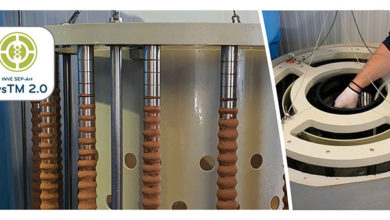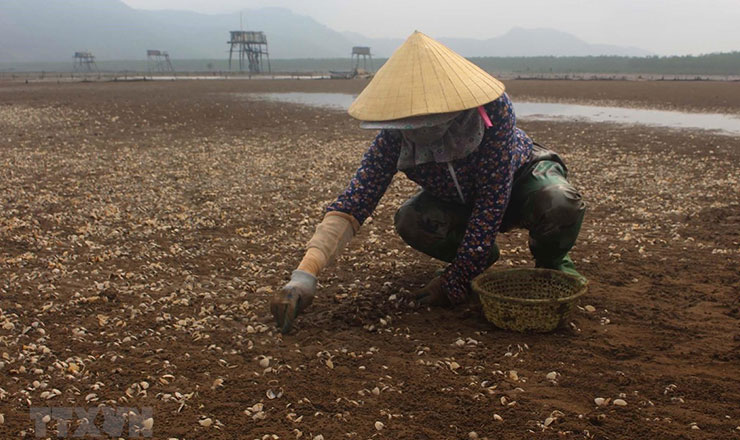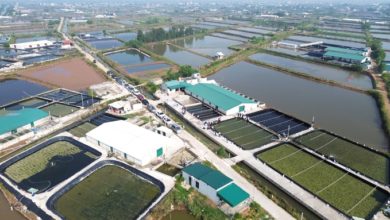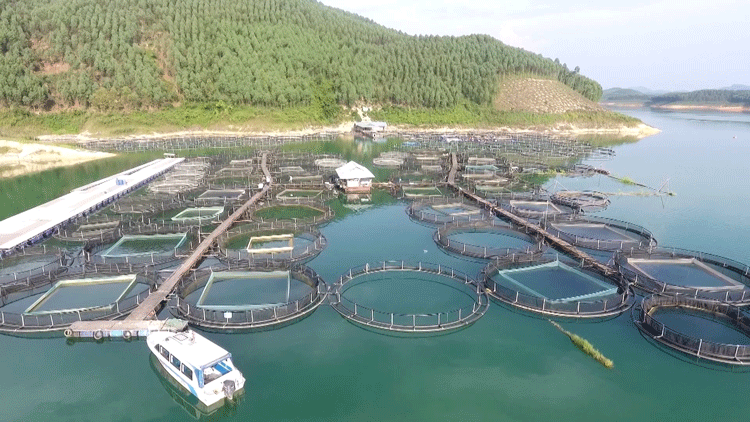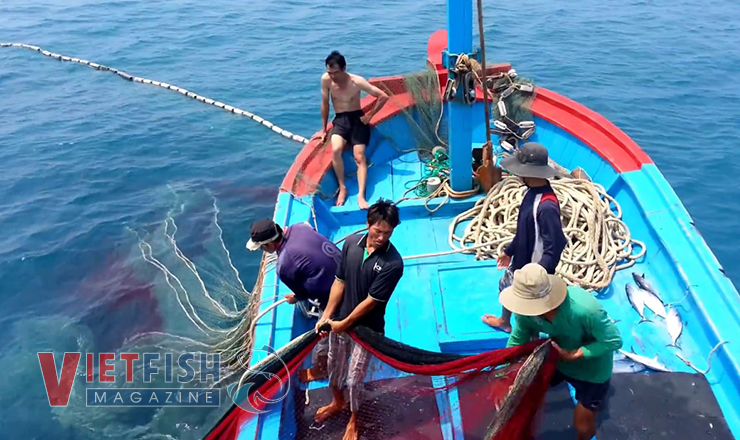Chile leads technological development program to boost sustainable offshore aquaculture
Technology with submersible systems could reduce operating costs by 18%, thanks to better and healthier growing conditions for fish, and contribute to the creation of a new world standard.
With a six-year horizon of applied research, the first technology development program of its kind in the country, seeks to develop the technical requirements for ocean aquaculture and lay the foundations for its future regulation.
Santiago, December, 10th, 2021.-Breeding fish where it was not thought possible and in a sustainable way, taking care of animal welfare and environmental impact, is now feasible thanks to the technology developed by the Chilean company EcoSea.
Since 2007, the company has been developing containment systems with antibacterial copper alloy meshes that are also antifouling, that is, they prevent the growth of organic layers in the cages, attributes that minimize the risky hours of diving and use of boats for cleaning, maintenance and replacement of traditional nylon meshes, generating significant reductions in operating costs.
Over the past 12 years, EcoSea has deployed more than 70 of these systems around the world, growing more than 10 million salmon. In addition, 3 farming centers in Chile were recycled after a decade of useful life, resulting in a total of 420 tons of recycled and resalable product.
The recycling process stopped the use of 160 tons of nylon, the waste of 8,000 tons of fouling, which would have been deposited in landfills or on the seabed, and 184 tons of chemicals such as anti-fouling paint. It is estimated that the release of 10,300 tons of CO2 into the environment was avoided.
Oceanic Aquaculture
In mid-2018, EcoSea’s technology caught the interest of CORFO, initiating the Technological Development Program for Ocean Aquaculture, Chile 2023, with a scope of 6 years of applied technology development and an investment of more than 6,300 million pesos.

“We are a country with more than 4,200 kilometers of coastline. We have extraordinary possibilities to successfully move towards a more sustainable aquaculture, far from the coastline and using state-of-the-art technologies that allow the industry to grow sustainably,” says Fabián Avilés, director of the Technological Development Program for Ocean Aquaculture.
The technological consortium is formed by EcoSea, which leads it; Invermar, as a partner; and the companies and technology centers Innovex, Novatech, Fraunhofer Foundation, Aex group, Sitecna, together with the Pontificia Universidad Católica de Valparaíso. The program is supported by the National Fisheries and Aquaculture Service (SERNAPESCA), the Undersecretariat of Fisheries (SUBPESCA) and the financial support of CORFO.
The novel initiative seeks to establish the technical requirements for offshore aquaculture with submersible cages, as well as to provide the basis for its future legislation in Chile. In addition, it offers a sustainable alternative to the current challenge of salmon farming, which has environmental, health and safety impacts, especially due to the lack of cultivation areas and the limited potential for growth in coastal areas.
Prototype testing
The program completed the prototype test, with a 40-meter diameter submersible cage developed by EcoSea. The main benefits were low fish stress (no predator attacks or escapes); high growth rates; and an 18% drop in production costs.

When comparing the performance of the EcoSea submersible cages versus the traditional nylon cages, it was demonstrated that the salmon grow at a better rate, because although in both cases, similar-sized fish were obtained, the prototype was planted two months later and with 47.5% smaller salmon; it also had a 2% lower mortality rate, and it is estimated that it avoided the emission of 27 tons of CO2.
“The production cycle with the submersible cage raft showed rapid growth development, low bacterial and parasite loads (Caligus), and zero losses due to sea lion attacks. From the operational point of view, the technology is very friendly, safe and efficient, with very low fouling adhesion, thus validating a robust and reliable aquaculture system,” says Omar Cheuquepil, Head of Production at Invermar.
The test was carried out in accordance with SUBPESCA’s regulatory framework, which regulates experimental aquaculture, in an inshore sea area of Chiloé, with a technological package that is expected to have better mooring and maintenance systems, better automated provision of feed and oxygen supply, and lower production costs.
Expert human capital
The Doctorate Program in Aquaculture, taught jointly by the Pontificia U. Católica de Valparaíso, the U. de Chile and the U. Católica del Norte, has incorporated ocean engineering, with emphasis on non-traditional sinking and mooring systems.
“The training of specialists must go with the technological advances in ocean aquaculture, in order to advance in this transition that will allow us to maintain the competitiveness and international recognition of the national aquaculture industry,” concludes Fabián Avilés.
Press contact: +56997891507


